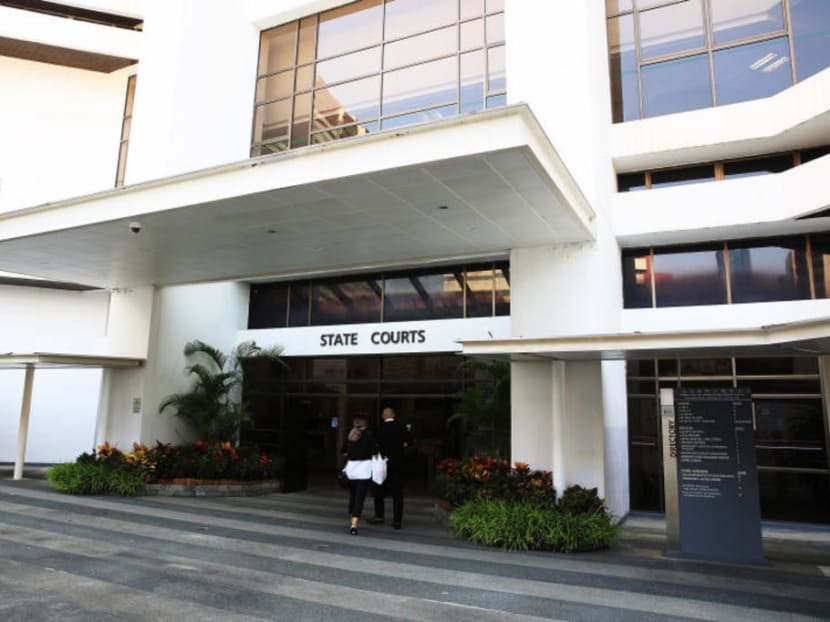3 jailed for selling counterfeit branded goods in Far East Plaza shops
SINGAPORE — They were selling hundreds of counterfeit luxury goods out of shops in Far East Plaza at Orchard Road — with one shop manager earning a cool S$15,000 a month — but the law caught up with them.

The court heard the manager of the Far East Plaza shops selling counterfeit branded goods was paid S$15,000 a month
SINGAPORE — They were selling hundreds of counterfeit luxury goods out of shops in Far East Plaza at Orchard Road — with one shop manager earning a cool S$15,000 a month — but the law caught up with them.
Once the police were involved, Liang Shengwei, who owned two of the shops, directed his accomplices to lie about their true involvement.
He had previously told one of them, Goh Eng Chuan, to say he was the real owner if they were caught, having struck an agreement to offset Goh’s gambling debts to Liang if the other man agreed to be the shops’ registered owner.
Liang had also roped in his wife, Esther Minah Mohamed Shah, to manage the shops for S$15,000 a month. Esther opened another similar shop herself in 2014, but it was raided on its first day of business.
The glittering array of fake goods on offer included well-known luxury brands such as Louis Vuitton, Chanel, YSL, Gucci, Hermes, Christian Dior and Burberry.
Several years on, all three were dealt with in the State Courts on Thursday (June 20).
Liang, 34, was sentenced to one year behind bars and ordered to pay a S$3,000 fine. Esther, 37, was jailed for 11 months, while 30-year-old Goh was jailed for three months and two weeks, and fined S$5,000.
They pleaded guilty to multiple counts of abetting by engaging in a conspiracy to possess counterfeit goods for the purpose of trade. Each charge under the Trade Marks Act carries a maximum of five years’ jail, a S$10,000 fine for each fake item, or both jail time and a fine.
STARS COUTURE, KADENGWEISI
The court heard that Liang ordered his goods from a supplier in Shenzhen, China, telling him to cut off the labels or sew one on with his shop’s name on it to avoid police detection. They ranged from footwear to jewellery, clothes and handbags.
He displayed the latest arrivals in one shop called Kadengweisi and put the off-season goods in the other shop called Stars Couture. He marked up the prices by about S$40 to S$70.
Liang set up Stars Couture first in April 2015 and got Goh to sign the lease agreement. Goh’s role was to follow Liang’s instructions to take the rap for him, if the shops were ever raided. In return, Liang would offset the gambling debts Goh owed him by about S$800 to S$2,000 every month.
Goh also opened a company bank account, signed on the cheque book so Liang could use the cheques, and gave the book and bank card to Liang.
Four months later, Liang opened Kadengweisi and got Esther to manage both shops, paying her S$15,000 every month. Esther served only customers she was familiar with.
Liang also employed his cousin to work in both shops, telling her to display the fake goods only during weekends to avoid police detection.
In mitigation, their lawyer Kesavan Nair said Liang first got into the trade sometime before 2013, when his various business ventures failed and he noticed several shops in Far East Plaza openly selling such counterfeit goods.
He was jailed for 10 weeks in March 2013 after authorities caught up with him, but re-offended due to mounting debts and a new addiction to gambling, Mr Kesavan said.
He had found it difficult to get a proper job after being released from prison and was unable to provide for his family. He opened Kadengweisi after Stars Couture in order to cover his losses and feed his habit, the lawyer added.
“At first sight, Liang’s business might give the impression that it was lucrative... With freight cost, the cost of rejected goods, staff cost, rental cost and his gambling, Liang’s enterprise did not always return a profit,” Mr Kesavan said.
On Thursday, Liang and Goh also pleaded guilty to participating in illegal gambling activities.
TATLER, PRESTIGE COUTURE
Meanwhile, Esther was involved in two other shops.
She first rented one called Tatler in Far East Plaza in 2012 to sell women’s apparel, but another woman took over as the sole proprietor in October 2013 to sell counterfeit branded goods.
Esther remained in the shop as a manager and was again paid S$15,000 a month.
The next year, she decided to open her own shop, Prestige Couture, to sell fake goods. She got 28-year-old Lau Jia Hong to sign its lease agreement and to be the fall guy if the shop was raided.
It opened for business on March 28, 2014, but the shop was raided by police officers that same day. Tatler had been raided the day before.
Mr Kesavan told the court that Esther did not make any money from Prestige Couture because of that, and had borrowed cash and used her family’s savings to buy their stock.
In 2015, the family racked up debts from medical bills as Esther’s mother was diagnosed with cancer. Liang then opened Stars Couture and Kadengweisi.
Both shops were raided in June 2016 and everyone except Liang was arrested.
After that, Goh, Esther and the shop’s employees would either tell Liang what they told the police by writing it on a piece of paper or calling him, so Liang was updated on the progress of the case.
Eventually, in September 2017, Goh cracked and decided to confess to the authorities — and after that, the others finally told the authorities the truth too.











